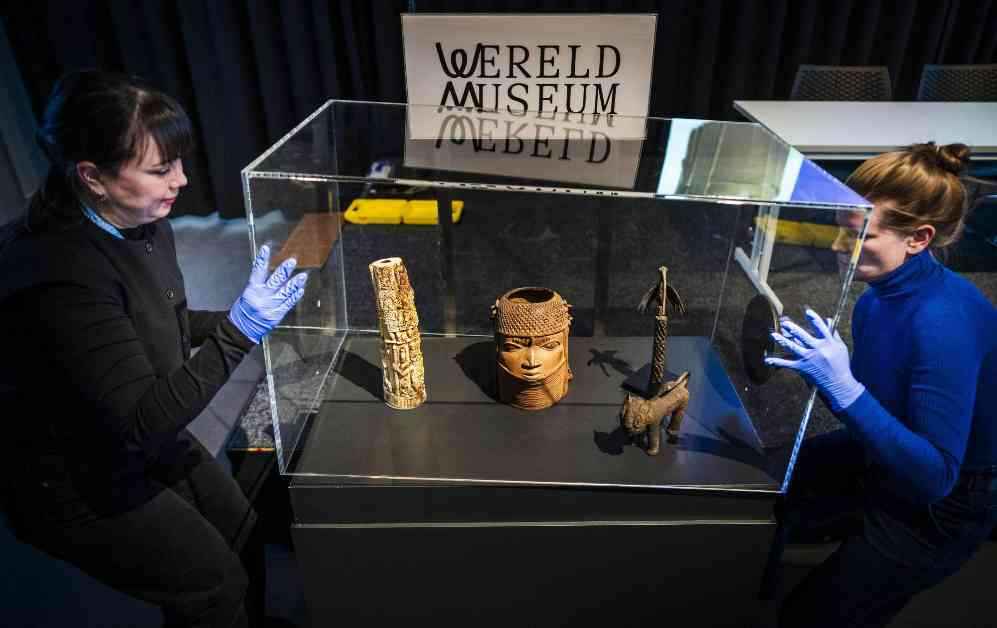The Netherlands is returning 113 Benin Bronzes to Nigeria, marking a significant move in the restitution of looted objects. These bronze sculptures, taken by British soldiers in 1897 from the Kingdom of Benin, are valuable cultural artifacts with deep historical significance. Dutch Minister of Education, Culture, and Science, Eppo Bruins, approved the decision to return the Bronzes to Nigeria following the official request from the country. This restitution is considered the largest return of Benin antiquities linked directly to the 1897 British punitive expedition. Olugible Holloway, the Director-General of the Nigerian National Commission for Museums and Monuments, emphasized the importance of these artifacts to Nigeria and the impact of their return in preserving cultural heritage.
**Restitution of Benin Bronzes: A Step Towards Healing**
The Benin Bronzes have been housed in the World Heritage museum Wereldmuseum in Rotterdam, and this move by the Netherlands marks the fifth occasion where artworks taken during the colonial era have been restituted. The decision to return these artifacts illustrates a growing awareness and acknowledgment of the colonial past and the need to address historical injustices. The cultural significance of these bronzes goes beyond their artistic value; they represent a part of Nigeria’s heritage that was forcibly taken and deprived of its rightful place.
Witnessing the return of these artifacts to their country of origin is a significant moment in the ongoing dialogue about the repatriation of looted cultural objects. It highlights the importance of recognizing and rectifying past wrongs, fostering collaboration between nations, and promoting cultural exchange based on mutual respect and understanding. As the debate on colonial legacies and cultural repatriation continues to evolve, the restitution of the Benin Bronzes sets a precedent for future actions in addressing historical injustices and preserving cultural heritage worldwide.
Uncovering an Art Forgery Workshop in Rome
In a separate development, an art forgery workshop producing fake works by renowned artists like Picasso and Rembrandt was recently uncovered in Rome. The operation, which involved the production and sale of counterfeit artworks online, was brought to light by Rome prosecutors who seized 71 canvases as evidence. The discovery of forged certificates guaranteeing authenticity and a cache of art supplies further underscored the scope and sophistication of the forgery ring.
The busting of this forgery network follows a pattern of criminal activities aimed at deceiving buyers and undermining the integrity of the art market. The proliferation of fake artworks poses a significant challenge to art institutions, collectors, and experts tasked with authenticating and preserving cultural heritage. The exposure of such illicit operations serves as a reminder of the importance of due diligence, transparency, and collaboration in combating art forgery and protecting the integrity of the art world.
Global Collaborations and Artistic Endeavors
Amidst these developments, the art world continues to witness collaborations and initiatives that bridge cultures, histories, and artistic practices. The formalized agreement between Hong Kong’s M+ contemporary art museum and New York’s Museum of Modern Art represents a significant step towards fostering international partnerships in the art world. This collaboration opens up avenues for shared resources, research, and exhibitions, signaling a new chapter in cross-cultural dialogue and artistic exchange.
Similarly, the upcoming Cape Town Art Fair, featuring a diverse range of international exhibitors and first-time participants, promises to be a vibrant platform for contemporary art on the African continent. As the art world grapples with issues of restitution, authenticity, and cultural heritage, events like these underscore the power of art in transcending boundaries, sparking conversations, and celebrating diversity.
In conclusion, the recent developments in the art world, from the restitution of Benin Bronzes to the uncovering of art forgery workshops and international collaborations, reflect the complex tapestry of challenges and opportunities facing the cultural sphere. As we navigate issues of provenance, authenticity, and artistic expression, it is essential to uphold the values of integrity, transparency, and respect for diverse cultural traditions. By engaging in open dialogue, promoting ethical practices, and embracing the richness of global artistic heritage, we can contribute to a more inclusive, equitable, and vibrant art world for generations to come.












